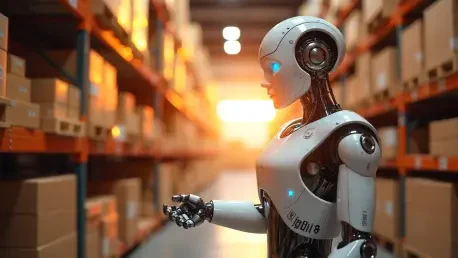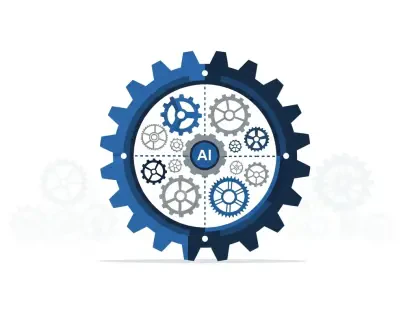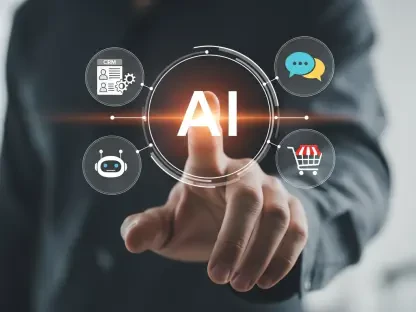In the ever-evolving landscape of global commerce, supply chains are the lifeline that sustains businesses. The integration of artificial intelligence (AI) into these complex networks represents a transformative leap forward. As uncertainties loom over supply chains, from unpredictable weather patterns to fluctuating consumer expectations, the adoption of AI has become vital for companies aiming to enhance resilience and manage volatility. Several industry leaders, like Mars Snacking, Five Below, and Generac, are at the forefront, leveraging AI to push the boundaries of efficiency, adaptability, and strategic insight.
The Role and Emergence of AI in Supply Chains
Artificial intelligence technology in supply chains is rooted in a combination of data-driven decision-making and machine learning algorithms. These systems enable companies to process vast amounts of data rapidly, thus driving informed decisions that optimize logistics and operations. By understanding historical data patterns and predicting future trends, AI provides an indispensable tool in the broader technological arena, where speed and accuracy are necessary for maintaining competitive edges. The growing need for real-time solutions has led to the proliferation of AI solutions tailored specifically for supply chain management.
Key Features Propelling AI Forward
Predictive Analytics and Forecasting
AI-driven predictive analytics and forecasting tools have revolutionized inventory management by anticipating demand fluctuations with precision. By leveraging historical data along with current market trends, these systems offer projections that streamline production schedules and optimize resource allocation. This foresight minimizes overstock or stockouts, leading to cost savings and improved customer satisfaction. The ability to predict and prepare for disruptions places businesses in a proactive rather than reactive stance, enhancing their market position.
AI-Powered Optimization Tools
Beyond mere prediction, AI-powered optimization tools provide precise solutions for complex logistical challenges. These tools enable businesses to simulate various scenarios quickly, such as Mars Snacking’s digital twin technology, to identify and mitigate logistics vulnerabilities. By modeling different outcomes, companies can devise strategies that maximize efficiency and minimize risks, reducing downtime and waste. Real-world applications demonstrate AI’s efficacy in transforming supply chain operations by automating routine tasks and optimizing dynamic processes.
Recent Innovations and Industry Trends
In the current technological zeitgeist, AI in supply chains is experiencing significant advancements. Recent innovations have introduced new AI models capable of refining data quality without demanding perfection, enabling more agile deployment. The industry’s trends are shifting towards seamless integration with existing infrastructure and prioritizing data governance as a critical component of successful AI implementation. These developments indicate a future where AI will continue to refine and expand its capabilities, further intertwining with strategic logistics and operations.
Practical Applications and Industry Examples
AI’s applications extend to diverse sectors, reflecting its versatility across industries. For instance, Generac employs AI to address weather-induced challenges by swiftly connecting data and streamlining response measures. Kim Sussman at Five Below emphasizes using AI to enhance data strategies, evolving with tariff changes to improve understanding along the value chain. These pragmatic examples illustrate AI’s ability to enhance processes, improve decision-making, and create more resilient supply chains capable of navigating complex landscapes.
Challenges and Limitations in Adoption
Though AI offers tremendous benefits, challenges remain that obstruct its widespread adoption. Technical hurdles include the complexity of integrating AI with legacy systems, the need for robust data architecture, and potential regulatory constraints. Market obstacles also arise as organizations grapple with strategic alignment and resource allocation. However, ongoing development efforts are focused on mitigating these hurdles by simplifying AI adoption pathways and enhancing compatibility with existing systems.
Anticipating the Future Trajectory
Looking onward, the trajectory of AI within supply chains is poised for remarkable growth, driven by technological advancements and increasing demands for efficient solutions. Future developments could involve AI breakthroughs in self-learning systems and enhanced predictive accuracy, further impacting the supply chain’s efficiency and responsiveness. Long-term, AI is likely to become integral to strategic planning, reshaping the industry and contributing to sustainable business practices globally. Companies will need to adapt dynamically, focusing on innovation and strategic implementation.
In reviewing the transformative impact of artificial intelligence on supply chains, it becomes apparent that AI’s integration is reshaping the industry landscape. With its widespread potential to tackle challenges and optimize operations, AI’s role will likely expand, continuing to redefine strategic management in an increasingly complex global market.









